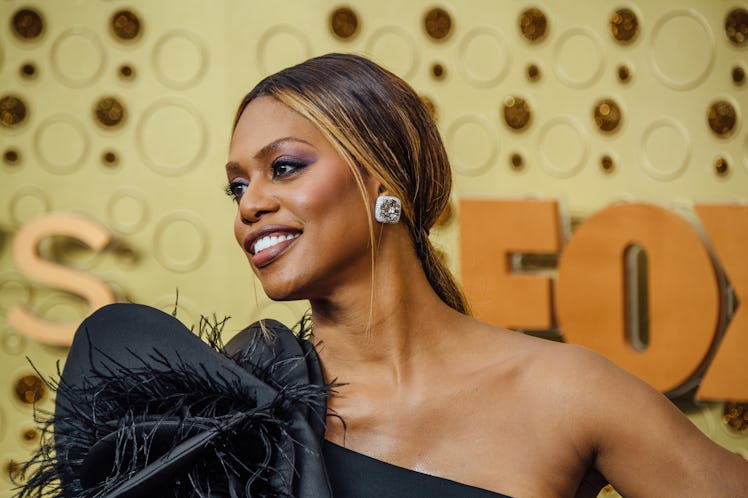
Here’s How Laverne Cox’s Life Improved Once She Started Sharing Her Truth
Laverne Cox is done with shame. At various points in her life, Cox says she has felt the need to hide pieces of herself from the world, including her gender and her age. But now, Cox reveals why she thinks vulnerability is one of the most powerful tools in the world, and she's sharing her truth not just for herself, but for others, as well. Laverne Cox's quotes about being true to herself are truly inspiring.
After Cox's breakout role as Sophia on the hit Netflix series Orange is the New Black, she was given a platform and an audience she never had before. It also gave her the chance to reevaluate the way she thought her life was supposed to look. For example, Cox says she used to think she was supposed to achieve all her professional goals by the time she was 30. "My career took off after 40, which is, like, not supposed to happen in Hollywood," Cox tells Elite Daily. But now, instead of looking at herself as a failure or trying to hide her age, 47-year-old Cox has chosen to speak her truth as the "resilient story" it is. "In ownership of that story, I can empower myself," Cox proudly says.
For Cox, part of telling that resilient story includes not denying the truth about herself and her family, even though she was hesitant, at first, to do so. "It’s such a weird thing with shame and stigma. It just really keeps us from the truth of who we are," she says.
Cox describes her childhood as one filled with love, but her family also struggled at points. She says she used to be hesitant to share the details of her humble beginnings, such as the time her family lived in a home that had a rat problem. "The reason I [didn't] want to tell this story is we were poor, and I was like, 'It’s gonna reflect badly on my mother that she had us in a rat-infested home.'" But Cox realized she is also proud of how her mother worked hard to care for her family and move them to another home. So the story of shame turned into one that is filled with strength and, for Cox, one that became a prime example of her mother's love and care.
"I share as a way to give," Cox says. "I think when we share our stories and ... the struggle of the stories, it makes other people feel like they’re not alone. So that is why I share, so that someone out there who may be going through the same thing or [is] having the same sort of frustration feels like they're not alone."
Cox explains that she's pushed shame away in a lot of areas of her life. Some of it came from her age, some of it came from her lower-income background growing up, and some of it came from her identity as a trans woman. In order to embrace all the power of being true to herself, Cox makes sure to also own each and every part of her identity.
"What is so wonderful about a person who has been shame-proned throughout my life is that I’ve done so much healing," Cox says. "It's like I put Band-Aids onto me and I’m healed, which is really remarkable. Not that I’m done yet. There are still things I have to work on. But it’s just wonderful that I’m still here. I’m a black trans woman alive at 47. Thats a miracle."
While Cox put metaphorical Band-Aids on herself in the past, she's now working with the bandage company to help even more people heal in meaningful ways. Each purchase of a box of RED Band-Aids will provide life-saving medication to someone living with HIV/AIDS in sun-Saharan Africa.
"There’s so much going on in the world right now where we feel powerless," Cox explains. "We want to make a difference and make things better, [but often] we don’t know how. The thing about this partnership with Band-Aid and RED is that just a box of BandAids, something that we already use, can make a difference in people’s lives."
For Cox, making a difference in people's lives happens in a lot of ways, including through her work as an actor and producer. After Orange is the New Black, which Cox calls a "once-in-a-lifetime thing," she has gone on to star in series like Dear White People and A Black Lady Sketch Show. Her next project is producing a documentary called Disclosure: Trans Lives On Screen, which looks at the history of trans representation in film and on television over the last hundred years. Remarkably, Cox and the film's director, Sam Feder, made an effort to hire trans people in all crew positions, and when they couldn't find a trans person with the right skills, they had a qualified cisgender person train a trans person to do the job.
Cox's push for diversity is a big part of her effort to help others share their stories, just as she works to share her own. Through it all, she's true to herself, and she's seen just how powerful that can be.